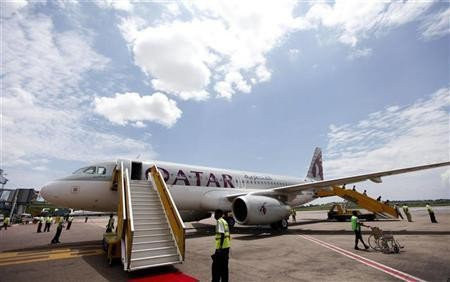UN organisation demands Qatar airline drop sexist ban on pregnant cabin staff

Qatar Airways may groom its young female flight attendants to dangle as seductive eye candy for passengers, but the company has long controlled every aspect of their sexuality from establishing curfews, requiring approval for marriage and jettisoning workers who become pregnant.
Now a United Nations labour organisation is demanding that the restrictions be lifted.
Following a year-long investigation, the UN's International Labour Organisation has called on Qatar Airways specifically to scrap a contract clause allowing it to sack pregnant cabin crew staff, ruling that it breaches its 57-year-old convention against discrimination at work.
The ILO is also demanding that the Doha-based airline review a requirement that female cabin crew members can only be transported to and from work by a male relative, which the airline has always defended as a "a cultural norm."
In addition, the organisation wants the Qatari government to review the impact on women of a contract clause demanding workers must "obtain prior permission from the company" before proceeding with marriage. But the government now says that clause has been dropped.
So far the airline hasn't been very contrite or accommodating, notes the Guardian.
Qatari Airways CEO Akbar Al Baker accused the ILO of having a "vendetta" against both Qatar and its national airline. "I don't give a damn about the ILO – I am there to run a successful airline," he told Reuters. "This is evidence of a vendetta they have against Qatar Airways and my country."
About 80% of Qatar Airways' cabin crew are women, and about 90% of its total staff are migrant workers. Dismissal from work usually also means deportation.
The ruling comes as the highly controversial pick of Qatar to host the 2022 World Cup is drawing increasing scrutiny of the nation's position on human rights and its treatment of workers and women. The nation's "cultural norms" could have an unpleasant impact on female football spectators attending the World Cup.
© Copyright IBTimes 2025. All rights reserved.






















